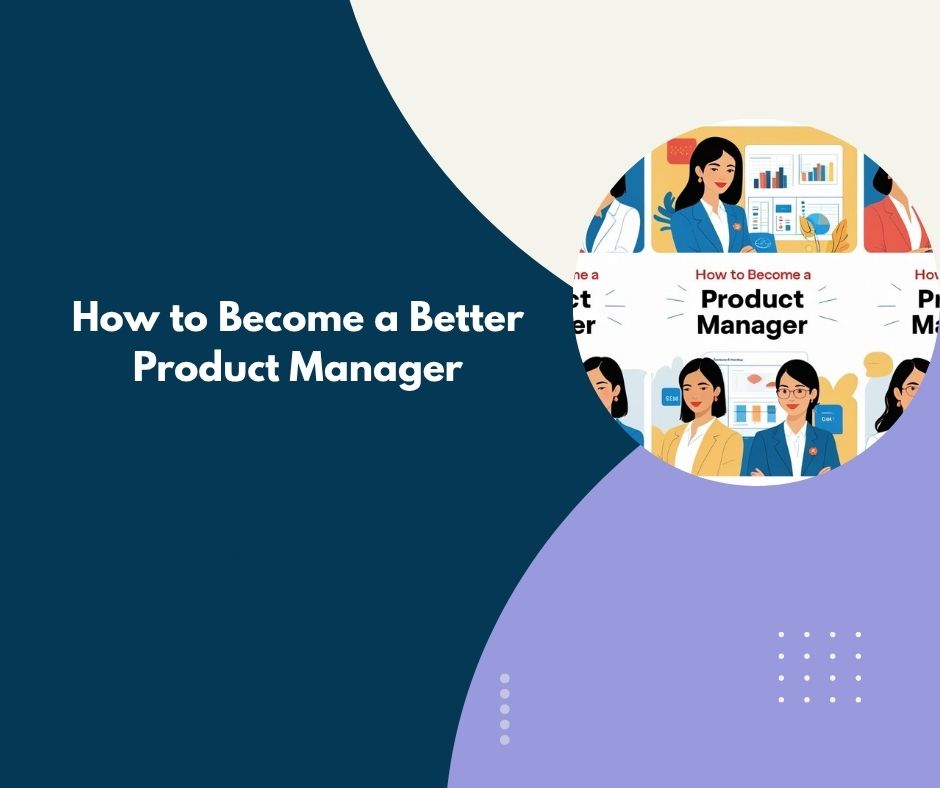
Being a product manager is tough. You're constantly juggling competing priorities, trying to keep everyone happy, and somehow expected to have all the answers. Fortunately, even the most successful product managers started somewhere, and with the right approach, you can absolutely excel in this field.
We’ve gathered some of the most helpful tips from experienced PMs on how to become a great product manager. Let's get started.
Before we dive into how to become a better product manager, let's talk about what you're signing up for. Many people believe the product manager role is solely about writing requirements and managing timelines. That's closer to what a project manager does.
As a product manager, you're more like the CEO of your product. You own the vision, strategy, and success of what you're building. Your job is to figure out what new products or features will solve real customer needs and then work with your product team to make it happen. You'll spend your days talking to users, analyzing data, and working with designers and engineers.
With all this in mind, how then can one become a better product manager? We're just about to find out
Becoming a better product manager doesn’t happen overnight. Here are the best practices that will help you build the habits of a truly effective product leader:
A successful product manager must have a thorough understanding of the entire product lifecycle, encompassing initial market research through to product launches. The product life cycle is more than just a checklist; it's the heartbeat of product development. Great PMs pay close attention to each stage, making sure the product’s development aligns with business objectives, user experience goals, and the product vision.

Without a solid product strategy, even the most exciting product ideas can fall flat. An effective product manager needs to set a clear vision for the product and connect that vision to a roadmap that makes sense. That product roadmap isn’t just a timeline; it's a tool that guides your product team and helps you prioritize features. It also aligns cross-functional efforts across teams, including the development team, design, marketing, and sales.
One of the most essential skills of a product manager is knowing how to prioritize. With dozens of requests flying in from stakeholders, and even your CEO, how do you choose what gets built next?
A good product manager evaluates each request based on customer pain points, potential impact, technical feasibility, and alignment with the product’s long-term goals. You should use tools like Productogz to collect ideas & feature requests and prioritise. Frameworks like RICE or MoSCoW can help, but at the end of the day, strategic thinking and empathy for your users are what matter most.
This is one of the most needed product management skills. In this role, you’re constantly talking. It's either you’re explaining the product roadmap to executives, gathering feedback, or aligning with your development team. Being a great product manager isn’t just about speaking clearly. It’s also about listening. You have to understand what your team members are really saying and pick up on the unspoken concerns that could derail your product development efforts. This is where you need interpersonal skills. Your ability to communicate with both technical and non-technical team members can make or break your product's success.

The best product managers never stop learning. This is because customer needs can shift overnight, especially in digital product and software development environments. A Product School report found that 72% of product managers take online courses or attend workshops yearly to stay up to date with trends in tech and customer behavior. Hence, you need to read product management books, follow industry blogs, take courses, and attend product management meetups. Even if you're a junior product manager or someone looking to move into a leadership role, learning is part of the job.
Strategic thinking isn't just a buzzword, but one of the key skills in developing a career in product management. You need to understand where your product's going and why. This means knowing the product market inside and out, understanding your competition, and having a clear product vision that everyone can rally behind.
A great product manager might ask, “What’s the user trying to achieve?”
This user-first mindset helps you improve UX, uncover customer pain points, and build features that solve problems. Invariably, good product managers don’t assume they test, validate, and adjust based on user behavior. More reason user research and usability testing should be part of your regular product management process.
A typical product manager juggles several moving parts. To stay organized, you’ll need strong project management and organizational skills. You should use tools like Notion, Trello, or Jira to track progress and assign tasks. You can also document your product decisions, revisit your product roadmap often, and make sure you always have a source of truth for your product vision and backlog.
You don't need to be a developer, but understanding software development processes will make your life so much easier as an aspiring product manager. When your engineering team tells you something will take three weeks, you should have enough context to know if that's reasonable or if there might be a simpler approach. The same goes for UX and user experience design. You don't need to be a designer, but understanding basic design principles helps you advocate for users throughout the product lifecycle.

Many product managers struggle with this. It's obviously the hardest part of their job. You can't please everyone, because building a top product means saying no more often than yes. The stakeholders will have ideas, the sales team will definitely have requests from prospects, and what about the engineers? They'll have cool technical features they want to build. Your job is to filter all of this through your product strategy and figure out what moves the needle.
Every new product feature comes with time, complexity, and opportunity cost. If something doesn’t fit into your product strategy or deliver real value, it’s okay to say no or “not right now”. It’s better to make a product that does a few things well than one that does everything poorly.
In a leadership role, the product manager position requires you to influence without authority. You’ll often work with people who don’t report to you, like designers, engineers, marketers, or analysts. What makes a great manager is your ability to motivate the product team, build trust, and drive alignment around creating products.
A successful product manager doesn’t get too attached to their ideas. Instead, they test, gather user feedback, and improve constantly. Usually, product managers set the tone for iteration. So, you'll have to run A/B tests, launch MVPs, and ask for user feedback. Then use that data to improve the product experience. One easy way to collect and organize feedback is by using Productlogz. It’s a tool that helps you track what users are saying, spot patterns, and turn feedback into real product improvements.

Product management is challenging, but it's also one of the most interesting and impactful roles you can have in tech. So, focus on solving real problems for real people, and everything else will fall into place. With the right mindset, hard and soft skills, and the right tools, you’re well on your way to becoming a truly great product manager.
No sales calls. No long setup. Create your workspace and start collecting feedback today.